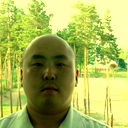I. Fill in the article (a, an, the).
1. She has got … son and …daughter.
2. … son is learning English … daughter is studying math.
3. My uncle is … policeman.
4. Would you like … cup of tea?
5. Would you go to … art gallery she told us about.
6. When I was in … USA last summer I lived on … farm.
II. Fill in the appropriate preposition: of, in, during, for, at, to.
1. I am proud … my father.
2. The city is famous … its museums.
3. The stadium was built … 1960.
4. What did you do … summer holidays?
5. Many years ago many schoolchildren walked … school.
6. … the age of 20 he met his wife.
III. Tenses.
1. What are you … now? I am … my homework. (do, doing, done)
2. I usually … to music in the evening (listening, listen, will listen).
3. His father … his job next week (change, will change, changed).
4. I often … my grandparents on Sundays (visited, visit, visiting).
5. Have you ever … to Paris? (was, be, been)
6. The exotic animals were … in the Tower of London in the thirteenth century. (will live, lived, are living)
IV. Wordformation (Словообразование).
Give the opposite meaning
1. friendly - 4. unknown -
2. lucky - 5. unpleasant -
3. polite - 6. independent -
V. Translate the proverb.
1. A bad beginning makes a bad ending.
2. A bird in the hand is worth two in the bush.
3. A close mouth catches no flies.
Домашние задания: Другие предметы
Помогите сделать английский язык хоть чем нибудь
I. Fill in the article (a, an, the).
1. She has got a son and a daughter.
2. The son is learning English a daughter is studying math.
3. My uncle is the policeman.
4. Would you like cup of tea?
5. Would you go to an art gallery she told us about.
6. When I was in the USA last summer I lived on a farm.
II. Fill in the appropriate preposition: of, in, during, for, at, to.
1. I am proud of my father.
2. The city is famous during its museums.
3. The stadium was built in 1960.
4. What did you do in summer holidays?
5. Many years ago many schoolchildren walked in school.
6. In the age of 20 he met his wife.
III. Tenses.
1. What are you do now? I am do my homework. (do, doing, done)
2. I usually listen to music in the evening (listening, listen, will listen).
3. His father will change his job next week (change, will change, changed).
4. I often … my grandparents on Sundays (visited, visit, visiting).
5. Have you ever was to Paris? (was, be, been)
6. The exotic animals were lived in the Tower of London in the thirteenth century. (will live, lived, are living)
IV. Wordformation (Словообразование).
Give the opposite meaning
1. friendly - 4. hostile
2. lucky - bad luck 5. unpleasant - nicely
3. polite - rude 6. independent - subordinate
V. Перевести пословицу.
1. плохое начало делает плохой конец.
2. птица в руке стоит двух в кустах.
3. Близкий рот не ловит мух нет.
1. She has got a son and a daughter.
2. The son is learning English a daughter is studying math.
3. My uncle is the policeman.
4. Would you like cup of tea?
5. Would you go to an art gallery she told us about.
6. When I was in the USA last summer I lived on a farm.
II. Fill in the appropriate preposition: of, in, during, for, at, to.
1. I am proud of my father.
2. The city is famous during its museums.
3. The stadium was built in 1960.
4. What did you do in summer holidays?
5. Many years ago many schoolchildren walked in school.
6. In the age of 20 he met his wife.
III. Tenses.
1. What are you do now? I am do my homework. (do, doing, done)
2. I usually listen to music in the evening (listening, listen, will listen).
3. His father will change his job next week (change, will change, changed).
4. I often … my grandparents on Sundays (visited, visit, visiting).
5. Have you ever was to Paris? (was, be, been)
6. The exotic animals were lived in the Tower of London in the thirteenth century. (will live, lived, are living)
IV. Wordformation (Словообразование).
Give the opposite meaning
1. friendly - 4. hostile
2. lucky - bad luck 5. unpleasant - nicely
3. polite - rude 6. independent - subordinate
V. Перевести пословицу.
1. плохое начало делает плохой конец.
2. птица в руке стоит двух в кустах.
3. Близкий рот не ловит мух нет.
Татьяна Ширшова
спасибо!
с пословицами нужно близко по смыслу перевести, а не дословно это типа wall flower - девушка которую никто не приглашает танцевать)) (и она стоит у стены)
Похожие вопросы
- Помогите сделать английский язык *2.Составить с данными словами 10 предложений в Past simple
- Помогите сделать английский язык
- помогите сделать английский язык
- Помогите сделать английский язык срочнооо
- Нужно очень чтобы мне помогли с английским языком,надо перевести текст!!!!за лучший перевод 10 баллов!!!
- Помогите решить Английский. язык.
- Помогите по английскому языку пожалуйста
- Помогите с английским языком!
- Помогите с английским языком срочно надо сделать!
- Помогите, пожалуйста, сделать английский язык. Present Simple - Present Continuous

